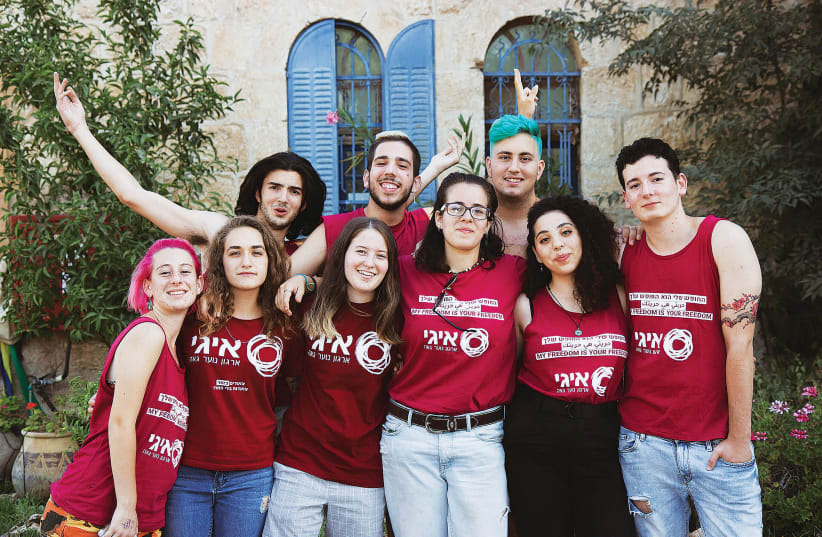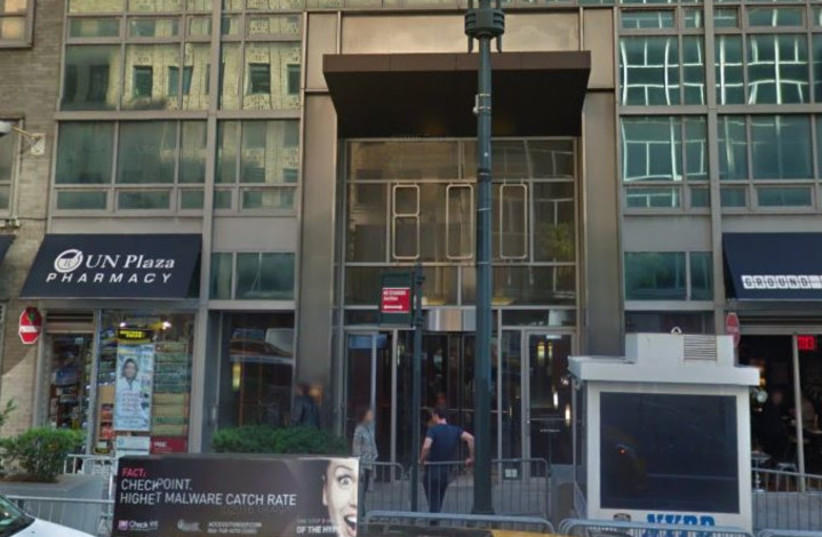NEW YORK – Israel’s new government is the most diverse in the Jewish state’s history. It includes nine female ministers, two Arab ministers, two openly gay ministers, a minister with disabilities and Naftali Bennett, the first kippah-wearing prime minister. In New York, the Israeli consulate said they are prompted by the unique coalition, which was formed in June 2021, to present the diverse side of Israel to Americans.
“We don’t just want to talk about how Israel is doing such a great job at being diverse, we want to actually initiate projects so that the first time Americans encounter Israel they experience a project in their neighborhood assisting them or a speaker they can relate to,” Itay Millner, spokesman for the Israeli Consulate in New York, told The Jerusalem Post. “Now we actually have the most diverse government, it’s not just talk.”
Last Friday, the consulate hosted a brunch for about two-dozen attendees, including social media influencers and members of the press, to discuss diversity and inclusion in Israel and New York.
The panel featured Ofer Newman, president of Israel Gay Youth (IGY), Liana Meirom Asif, vice president of IGY, Yoseph Haddad, founder of Together–Vouch For Each Other, who discussed his life as an Israeli-Arab defender of Israel and Emily Schrader, founder of political marketing firm Social Lite Creative, who shared her experience as someone who moved to Israel and fights for human rights.
“It is not about showing the good side of Israel, it’s about doing the good side of Israel,” Newman, who runs Israel’s largest LGBTQ organization, told the Post. “When you have various organizations sitting in one room talking about how hard it is to come out of the closet, how hard it is to tell my mother who I really am, we become connected by hearing these deep experiences.”
“It’s also complicated to talk about Arabs and Jews working together,” he continued. “It’s important to show the world and American Jewry that there are forces like us in Israeli society that are for democracy and peace.”
Newman called the consulate’s campaign to present the diverse side of Israel a “smart move.”
“To bring together these diverse voices, in a powerful stage full of influencers, it creates a discourse that is leading to all kinds of foundations to a new perception of Israel,” he said. “Promoting acceptance speaks louder for Israel than any kind of propaganda. Prejudice and misconceptions are a big part of what is conceived about Israel. We have to work to create a different reality that will speak louder.”
Looking forward, Millner told the Post that the consulate’s strategy includes reaching out to various groups that are “not naturally supporters of Israel.”
He added that the consulate, which is located in midtown Manhattan and serves residents of New York, New Jersey, Pennsylvania, Ohio and Delaware, intends to broaden its reach, focusing beyond American Jewry.
For example, during Sukkot last month, the consulate combined holiday festivities with Spanish Heritage Month. The event – dubbed Latin Sukkah – featured dinner in the sukkah with prominent leaders of New York’s Hispanic community.
Millner noted that the Ministry of Foreign Affairs has assigned the first-ever special envoy for social impact diplomacy, Ambassador Yehuda Yaakov. He said the ambassador plans to take a hands-on approach.
Yaakov, who grew up in the projects in Queens, and later on became a diplomat, is expected to arrive in New York next week where he will meet with local politicians, activists, journalists and students.
“He’s not just coming to talk about Israel’s social impact and diplomacy, but he will also be looking for opportunities to collaborate,” Millner said. “He’s going to engage with the community and be valuable to neighborhoods around Queens and the Bronx. He will initiate projects, not just talk,” Millner said.
“We want to display to the American people the policy of Israel’s government, as well as Israel’s civil society. We’re showing America Israel’s organizations that provide support to those who need it most, regardless of sexual orientation or race. That is very much a part of the discourse of the United States and it’s a great opportunity for us to get involved,” Millner continued.
He expressed that there can be challenges engaging with some groups. Not everyone is open to the idea of viewing the Jewish state as an inclusive democracy.
“But as the consulate in New York, and also collaborating with consulates and embassies around the US, we are persistent with it because we know we have a lot to say,” Millner continued.
“The impression that I have is that these efforts are going to grow and to continue for a long time.”

